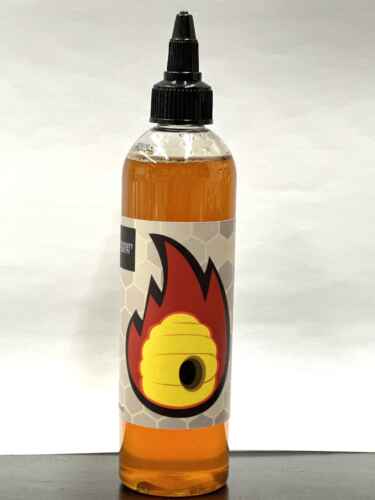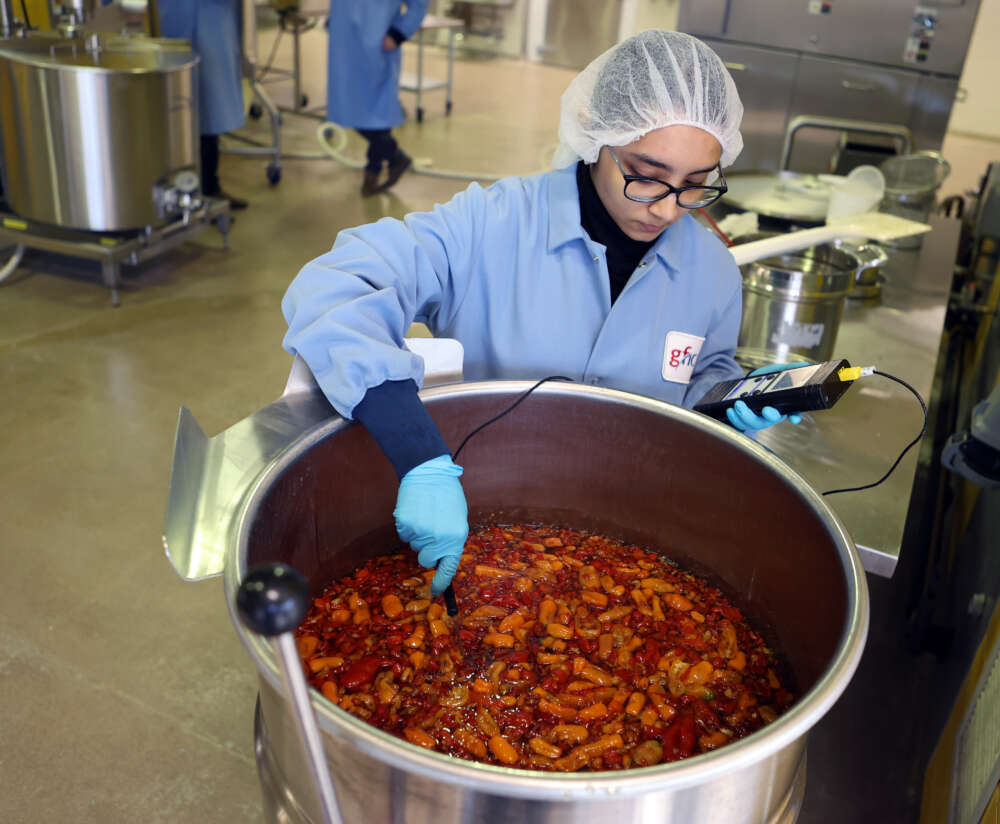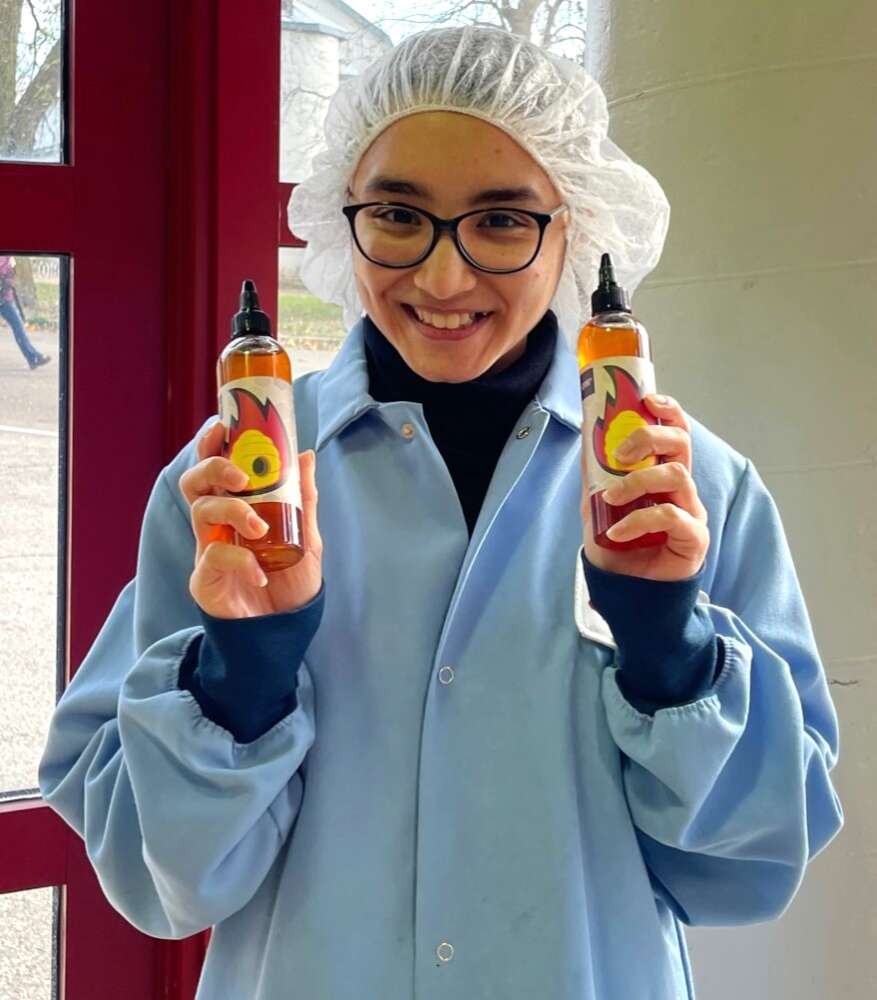Make some room, Cannon Fire — there’s a sweet new sauce on the University of Guelph campus.

Set to make its debut this weekend at Fair November, Hot Honey is a spice-infused drizzle created by U of G food science student Krupa Thakkar.
The fourth-year student created the product during a co-op term at the Guelph Food Innovation Centre (GFIC), a research centre at U of G that helps food manufactures get products into production.
Every year since 2018, GFIC has helped food science students bottle up Cannon Fire, a “seed-to-shelf” hot sauce named after the University’s beloved campus cannon.
Students grow the peppers over the summer and then harvest, chop and season them into a bestselling classic hot sauce in the fall. Each student cohort also creates their own unique limited-edition sauce; this year’s is called Molten Mango-Lime.
But when Cannon Fire production ends, more than a few peppers are left over. So Thakkar was asked to try to create something new.
“I wanted to make something with the leftover peppers and thought about hot honey, which is really popular right now,” she says.
Cannon Fire hot sauce inspires sweet, spicy honey

Using skills she’s gained pursing a minor in marketing, Thakkar conducted market research, sourced honey from the Honey Bee Research Centre on campus, created a formula and led production and bottling.
“I used three types of peppers from the Cannon Fire sauce: Trinidad scorpion, roulette habanero and bhut peach,” she says.
The result is a classic sweet sauce with a definite kick that can be drizzled over pizza, chicken wings, or even vanilla ice cream.
Hot Honey is a limited run. Only 180 bottles are available and Thakkar suspects they will sell out fast.
“People are really excited about it,” she says.
GFIC director Derek Vella says he’s pleased Thakkar has created a product she’s proud to call her own while gaining experience that will serve her in her career or next phase of studies.
“These kinds of projects allow students to experience the challenge and excitement of managing product development initiative from beginning to end,” Vella says. “It’s something most students will not get to experience until they are in the workforce for a few years.”
Co-op work term offers chance for hands-on learning

Learning first-hand the many complexities of taking a product to market is critical to building successful food scientists ready to enter the workforce, he adds.
“When a student like Krupa shows interest and initiative, we are happy to work with them to build their confidence and experience,” he says. “I personally find that very rewarding.”
For Thakkar, an international student from Mumbai, India, opportunity to engage in hands-on experiential learning as part of her studies was a big reason she chose U of G.
“I knew I wanted to study food science and when I looked up the best food science programs in Canada, U of G came up as the number one choice,” she recalls. “I loved the co-op option and the more I read about the program, the more amazing it looked.”
Now eying a master’s of food science, Thakkar is confident in her decision to become a Gryphon.
“I never thought I’d be leading a project like this when I signed up at U of G, so I’m really happy with my decision.”
Hot Honey is available for sale online and at the Cannon Fire hot sauce booth during Fair November in the University Centre between Thursday, Nov. 16 and Sunday, Nov. 19.
Contact:
Derek Vella
GFIC director
dvella@uoguelph.ca
